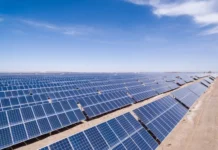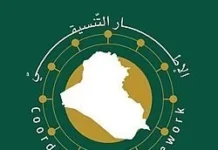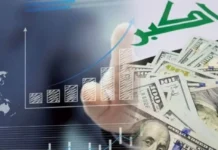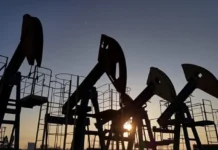Tishwash: Parliament postpones the 2025 budget law until after the elections.
Parliamentary Services Committee member Baqir al-Saadi confirmed on Saturday that one of the most important laws yet to be passed is the 2025 budget schedules law. He explained that this law is on hold until after the elections because the government has not sent it to the House of Representatives.
Al-Saadi told Al Furat News Agency, “The House of Representatives is expected to hold a single session this week to approve a set of laws, after which the electoral race will begin.” link
Tishwash: The Iraqi parliament will not be in session until the elections. What are the reasons?
An Iraqi parliamentarian revealed the existence of a political will aimed at continuing to disrupt parliamentary sessions until the next parliamentary elections. Meanwhile, a researcher pointed to political calculations obstructing legislative work.
MP Yasser Al-Husseini said in an interview with the “Al-Jabal” platform on Saturday, October 4, 2025, that “the inability of the House of Representatives to hold its sessions during the current period is due to the lack of political will and the intention to keep Parliament paralyzed until it is dissolved as the election date approaches.”
The MP stated that “the deliberate disruption of sessions is not due to technical or procedural reasons, but rather to hidden political agreements that seek to keep the parliament paralyzed, depriving citizens of the parliament’s oversight and legislative role at a time when important decisions are required.”
He added that “there are political forces that see the continued disruption of parliament as an opportunity to pass the time until the next elections, with the aim of avoiding the constitutional and oversight obligations imposed by this stage. This behavior contradicts the principles of democracy and undermines the public’s confidence in elected institutions.”
The Iraqi parliament was scheduled to hold a parliamentary session last Wednesday to discuss and vote on 11 draft laws and proposals. However, the lack of a quorum prevented the session from convening for the third time in as many days.
“Political calculations”
For his part, political affairs researcher Riyadh Al-Wahili agreed with the parliamentarian’s position, saying in a separate interview with Al-Jabal that “Parliament is facing a clear paralysis in holding its sessions, not as a result of technical or procedural circumstances, but rather due to the political will and premeditated intent of some influential forces.
There is a clear tendency to disrupt parliamentary work and leave Parliament in a state of stagnation until it is officially dissolved as the electoral deadline approaches.”
Al-Wahili explained that “this obstruction reflects narrow political calculations aimed at exploiting the legislative vacuum for electoral gains, rather than adhering to Parliament’s constitutional role of oversight and legislation.”
According to him, “the continuation of this situation could open the door to further political crises, as the absence of parliamentary sessions means the absence of crucial decisions that affect people’s daily lives, in addition to the suspension of necessary legislation to keep pace with the current situation.”
The political affairs researcher concluded his remarks by noting that “if political will remains bound by electoral calculations, Parliament will lose its justification for existence and will remain mired in obstruction until the next elections finally decide its fate. link
************
Tishwash: Iraq’s gold reserves surge to 163 tons: PM advisor
Iraq’s gold reserves have increased by about 10 tons, but its foreign currency reserves are down, an advisor to the prime minister told Rudaw on Saturday.
Iraq’s gold reserves have “increased significantly from 152.6 tons” last October to “163 tons” today, said Mazhar Mohammed Salih, an economic advisor to Prime Minister Mohammed Shia’ al-Sudani.
Iraq holds the 29th largest gold reserves globally and the fourth largest in the Arab world, according to the World Gold Council.
“Having these reserves indicates Iraq’s strong financial and economic stability,” Salih said, adding that Baghdad’s abundant reserves “could lead to encouraging foreign investment and securing a lasting economic infrastructure for our country.”
Foreign currency reserves, however, stood at “around $100 billion, down by eight billion dollars compared with October last year,” he said.
Iraq’s foreign currency reserves consist of the US dollar, euro, Japanese yen, Chinese yuan, and the British pound.
Iraq’s economy has shown signs of stabilization in 2025, with inflation dropping by 21 percent and gold reserves seeing a significant increase, according to a July report from the Central Bank of Iraq. The country is, however, grappling with a persistent budget deficit. link
************
Tishwash: Iran removes four zeros from its currency
Iran’s Islamic Consultative Assembly voted on Sunday to remove four zeros from the currency, through a bill amending the Monetary and Banking Law.
The bill stipulates converting every 10,000 current Iranian rials into one new rial, while retaining the name “rial” as the country’s official currency.
The move aims to simplify financial transactions and mitigate the effects of the severe inflation that Iran has been suffering from for years.
It is noteworthy that the law removing zeros also requires the approval of the Guardian Council before it comes into effect.
This move comes after years of inflation and the deterioration of the rial’s value against foreign currencies due to economic sanctions, with the US dollar now worth more than 900,000 rials on the parallel market. link






